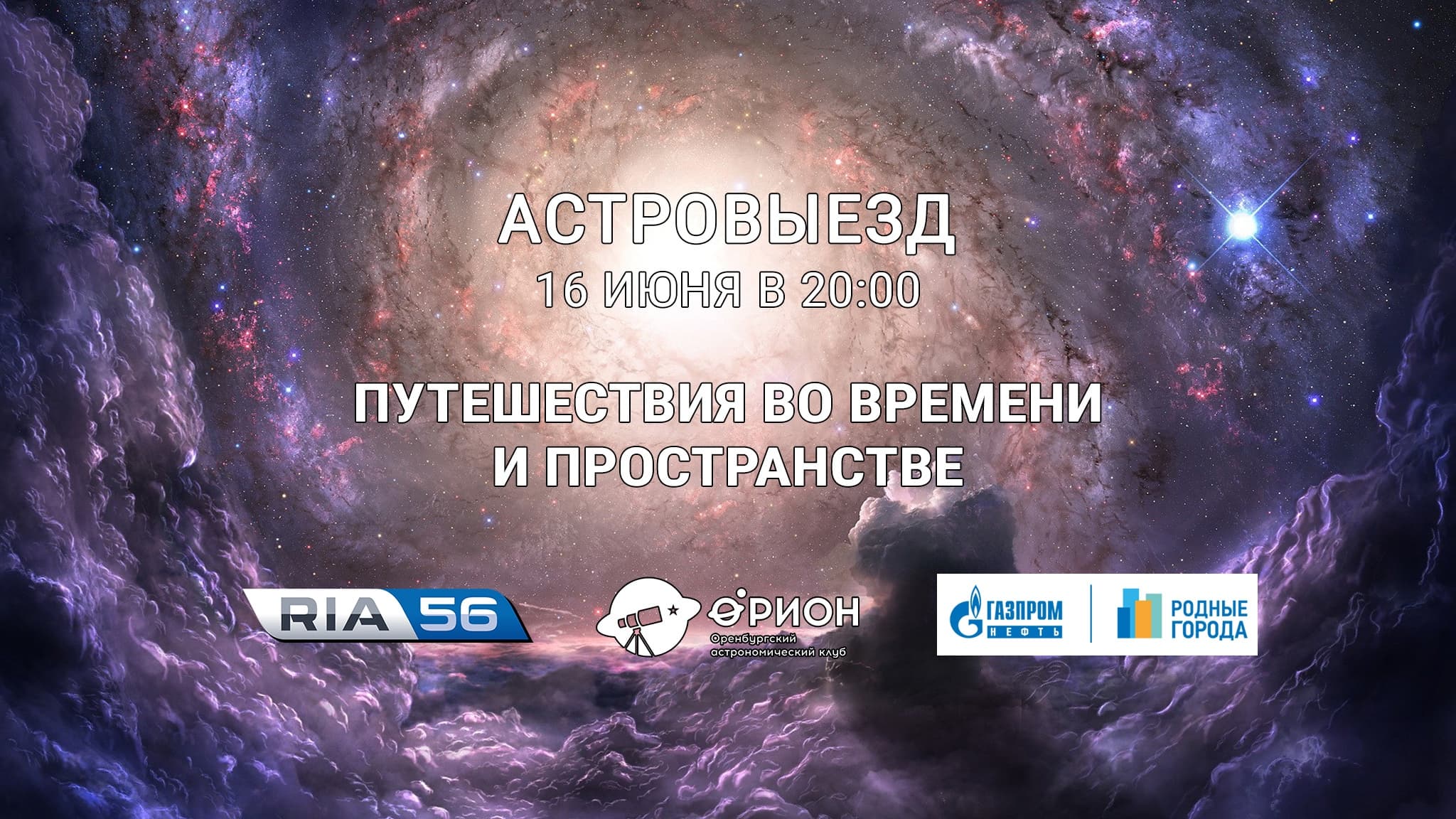
Hello! Want to travel a little in time and space?
We invite you to an open-air physics and astronomy lecture, which will take place on June 16, 2018. We will touch on one of the most interesting and exciting topics - we will teach you how to move in the space-time continuum! In an accessible form, we will explain what time is and how you can look into the future (only science, no "reptilians").
In addition, we will teach you how to navigate the constellations, tell you about the brightest points in the night sky and even observe the International Space Station (ISS). We will look at the stars and planets (Jupiter, Saturn and Mars) through powerful computer-controlled telescopes SW Dob 10" SynScan and SW BK2001 Heq5Pro. We will connect your Nikon and Canon SLR cameras to the telescopes to take unique pictures of distant galaxies, star clusters and nebulae.
The event is held as part of the RIA56 project "Look at the stars" by enthusiasts and amateur astronomers of the Orenburg astronomical community "Orion" with the support of the "Hometowns" program of the company "Gazpromneft-Orenburg".
Event details
Organizers and support
Organizers:
- Astronomical community "Orion"
- RIA56 project "Look at the stars"
Support:
- Social investment program «Hometowns» of the company «Gazpromneft-Orenburg»
Information about the event
Date and time: 06/16/2018, starts at 21:00
Terms of participation:
-
Participation is paid: 200 rubles per person.
-
Children - free.
-
It is recommended to have a personal vehicle. If this is not possible, you can find free seats with other participants.
Necessary things:
- A camping mat, foam, blanket or chair for comfortable accommodation.
- Warm clothes (colder at night than during the day).
- Tea, coffee, cookies, candy.
- Good mood!
How the astrotrip goes:
-
The first part of the program is a lecture on time, space and the possibilities of traveling through black holes and wormholes.
-
The second part is a tour of the constellations, legends and orientation in the sky.
-
The third part is observations through telescopes: planets of the solar system, double stars, star clusters, nebulae, galaxies.
Results of the astronomical trip
In the evening, at the numerous requests of the assembled amateur astronomers, the clouds parted, revealing a wonderful sunset and a dark country starry sky. The topic of the night lecture was the issues of time and space, the possibility of traveling through black holes and wormholes. The lectures were given by Sergey Medvedev and Misha Perevalov. The topic was chosen by voting, in which more than 100 people took part.
Observations:
-
The weather gave a calm atmosphere and a cloudless sky.
-
In one evening, we managed to observe 5 planets: Mercury, Venus, Jupiter, Saturn, and closer to one o'clock in the morning - Mars!
-
The crescent of the young Moon was also clearly visible (only 3 days!).
Lectures and stories:
- Sergey Medvedev spoke about constellations, navigation among the stars and legends of the starry sky.
- Four telescopes were installed at the site: SW Dob 10" SynScan, SW BK2001 Heq5Pro, 150 mm Schmidt-Cassegrain telescope and 80 mm Celestron refractor. All of them are equipped with automatic guidance and comfortably showed stellar and extragalactic objects.
Unexpected bonus:
- At 2:38 am, the GLONASS satellite launched by the Fregat booster block from the Plesetsk cosmodrome was clearly visible!
Acknowledgments:
- Many thanks to all participants for their active participation and interest in astronomy!
- Special thanks to the "Native Cities" program of the "Gazpromneft-Orenburg" company for supporting the project.
"This astronomical visit was truly memorable. Look forward to our next events!"